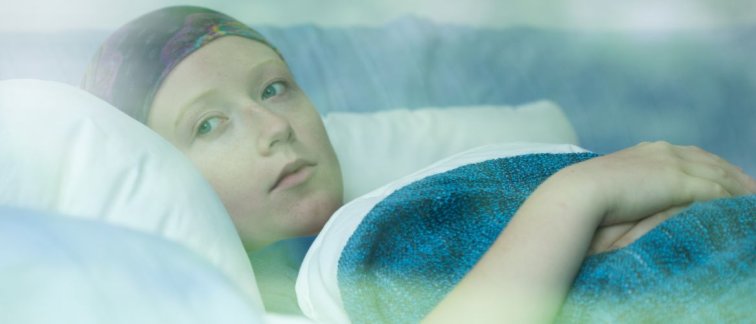AYAs are adolescents and young adults in the age group of 18 to 39 years who have been diagnosed with cancer. Because of their young age, these patients face unique problems and challenges leading up to and following their diagnoses. Since cancer is rare in this age group, the time between onset of symptoms and diagnosis is often longer, which gives the disease more time to advance. In addition, tumors in patients of this age group may respond differently to treatments.
Besides unique medical needs, AYA patients are confronted with many distinctive social and psychological questions. For example, cancer treatment may result in loss of fertility, which complicates relationships or family planning. Young patients may worry about how to continue their education or careers, maintain their independence, or feel isolated from friends and family who do not understand what they are going through.
National AYA care network
In 2016, a national AYA care network was formed to cater to the special needs of adolescents and young adults with cancer in the Netherlands. At Amsterdam UMC, Dr. Jacqueline Tromp is project leader of the AYA team. “First of all, it is really important that everyone knows we provide specialized AYA care at Amsterdam UMC,” says Dr. Tromp. “We organize regular multidisciplinary team consultations (MDOs) involving a wide range of medical specialists to determine the best available course of treatment for each individual AYA.” At Amsterdam UMC, medical specialists are primarily focused on treating the patient’s tumor, while specialized nurses, case managers and consultants provide broad support for AYAs to maintain or improve their quality of life in many other aspects.
We organize frequent multidisciplinary team consultations (MDOs) with a wide range of medical specialists to determine the best available course of treatment for each individual adolescent or young adult with cancer” Dr. Jacqueline Tromp.
Providing broad support for AYA patients
“When an AYA patient comes to a hospital for cancer care, they often feel very isolated and out of place among all the other much older patients with cancer,” says Joria Damhuis, AYA case manager. “First of all, we listen empathically to what the AYA patients tell us about themselves, their lives, and their illness. Based on this, we create an inventory to address their individual needs and connect the AYA patients to other specialists in our extensive care network, like a social worker, a psychologist or sexologist, a rehabilitation or occupational medicine doctor, or sometimes a palliative consultant.”
Yvet Koopmanschap, an AYA care consultant: “It is very important to form a true connection with the AYA patients. When you establish that bond, they feel safe and are no longer afraid to open up about all the personal problems they are facing. Only then can we really make a difference by coordinating the support they need. We also encourage them to reach out to other AYAs or join in social media activities of the AYA patient support group, so they feel they are not alone in this.”
Patients and medical professionals - partners in progress
Dr. Mathilde Kouwenhoven is a neurologist at Cancer Center Amsterdam and treats AYAs with brain tumors. “We aim to improve the treatment and the quality of life of these young patients to the best of our knowledge. As such, we also need to gain more knowledge, so we can keep improving our care,” she explains. “At this time, the national research programs at the AYA clinics are aimed at increasing our understanding of the patients’ needs and involve several questionnaires regarding quality of life, fertility, or fatigue after treatment. Within a European consortium, we collaborate to collect tumor material from AYA patients for in depth DNA analysis because some cancers in AYAs have unique genetic features. Knowing more about that can lead to new and better diagnostic markers and personalized therapies. Furthermore, we are also looking at the experiences of our AYA physicians, case managers and care consultants to better educate the next generation of care professionals and improve care.”
Inspiration in difficult times
With the ongoing COVID-19 pandemic, the lives of AYA patients became even more complicated, or so it seems. Ingrid Steenkist, an AYA care consultant explains: “Some of our AYAs have not been vaccinated yet, because of their treatments. These patients and their close ones have to avoid all COVID risks, meaning stay isolated, miss out on restaurant dinners, or meetings with larger groups of friends or family. Surprisingly, instead of being disappointed or angered by the consequences of the pandemic, most patients feel a sense of equality. They tell me: ‘I can't do anything, but the world can't do anything either. So in that way, we are sort of equal.’”
Challenges after treatment
For many young people, the completion of treatment is something to celebrate. However, this moment may also bring new challenges, such as worry that cancer will return, new routines or after effects. “After my treatment was over, I had lost my independence, my successful business, and my nice apartment in Amsterdam,” says Dennis de Graaf, who was 30 years old when he was diagnosed with a brain tumor. Dennis is now 8 years cancer free, and is a founding member and ambassador of the AYA ‘Jong & Kanker’ Foundation which raises funds in support of the national AYA care network. “My tumor turned my life upside down, I had to learn to talk and walk again. I got a second chance and found new meaning to my existence. Now, I am truly enjoying life and know that behind a mountain of difficulties lies a land of possibilities!”
For more information contact: aya@amsterdamumc.nl
Text by Henri van de Vrugt

